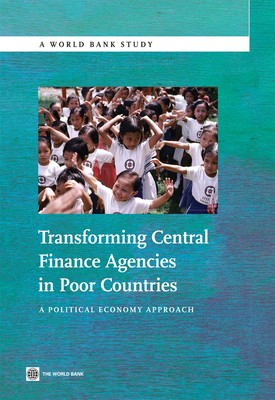
- We will send in 10–14 business days.
- Author: The World Bank
- Publisher: World Bank Publications
- ISBN-10: 0821398989
- ISBN-13: 9780821398982
- Format: 17.8 x 25.4 x 0.5 cm, minkšti viršeliai
- Language: English
- SAVE -10% with code: EXTRA
Transforming Central Finance Agencies in Poor Countries (e-book) (used book) | bookbook.eu
Reviews
Description
Enhancing the Capabilities of Central Finance Agencies: Synthesis Report presents the findings of a study of the functions performed by CFAs, defined as government organizations that carry out financial management functions for the whole of government. Using a political economy approach to the analysis of CFAs in ten case studies of low-income countries, the report identifies the principal constraints on the capability of CFAs as: interventions by the head of the state, sometimes outside the provisions of the constitution and budget law, in executive decisions on the institutional arrangements and fiscal policy; deficiencies in management, ranging from excessively centralized and hierarchical decision-making processes to poor staff management and record keeping; and inadequate coordination among donors--and between donors and their clients in finance and planning ministries--in designing and implementing strategies for reforming CFAs and PFM systems. Drawing on results of the cross-country survey of CFAs, the first of its kind, the report presents evidence and offers explanations for an "inverted U-curve" for the concentration of central finance functions across country income groups. In low-income countries, CFA functions are often poorly defined and may be performed by agencies other than the Finance Ministry, leading to fragmented and inconsistent policy implementation. Middle income countries tend to concentrate central finance functions in the Finance Ministry to strengthen their control. In high-income countries, Finance Ministries tend to retain control of policy but delegate operational functions to specialized agencies. The report will be of interest to country authorities seeking to improve coordination across central finance functions and other stakeholders in the reform process
EXTRA 10 % discount with code: EXTRA
The promotion ends in 22d.09:00:44
The discount code is valid when purchasing from 10 €. Discounts do not stack.
- Author: The World Bank
- Publisher: World Bank Publications
- ISBN-10: 0821398989
- ISBN-13: 9780821398982
- Format: 17.8 x 25.4 x 0.5 cm, minkšti viršeliai
- Language: English English
Enhancing the Capabilities of Central Finance Agencies: Synthesis Report presents the findings of a study of the functions performed by CFAs, defined as government organizations that carry out financial management functions for the whole of government. Using a political economy approach to the analysis of CFAs in ten case studies of low-income countries, the report identifies the principal constraints on the capability of CFAs as: interventions by the head of the state, sometimes outside the provisions of the constitution and budget law, in executive decisions on the institutional arrangements and fiscal policy; deficiencies in management, ranging from excessively centralized and hierarchical decision-making processes to poor staff management and record keeping; and inadequate coordination among donors--and between donors and their clients in finance and planning ministries--in designing and implementing strategies for reforming CFAs and PFM systems. Drawing on results of the cross-country survey of CFAs, the first of its kind, the report presents evidence and offers explanations for an "inverted U-curve" for the concentration of central finance functions across country income groups. In low-income countries, CFA functions are often poorly defined and may be performed by agencies other than the Finance Ministry, leading to fragmented and inconsistent policy implementation. Middle income countries tend to concentrate central finance functions in the Finance Ministry to strengthen their control. In high-income countries, Finance Ministries tend to retain control of policy but delegate operational functions to specialized agencies. The report will be of interest to country authorities seeking to improve coordination across central finance functions and other stakeholders in the reform process


Reviews